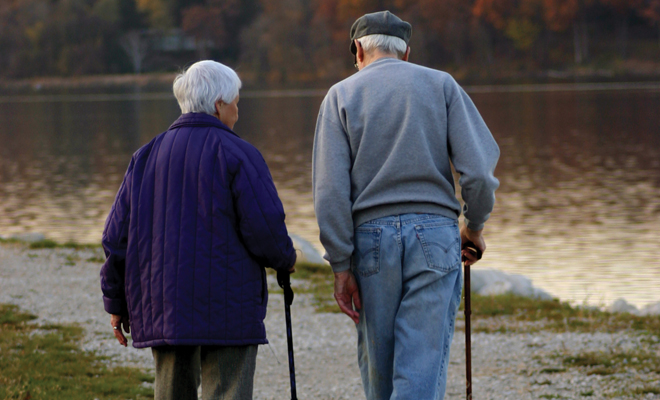
Keep Your Immune System Strong!
Your immunity–your body’s proud defense system–has an unwanted ability to weaken with age. The result? You are more susceptible to getting sick from bacteria, viruses, toxins and more.
Our immune systems are responsible for making cells and antibodies to destroy these harmful substances. However, with age comes a decrease in response time to these attacks, which can lead to increases in illness. In other words, as we age, our immune systems come along for the ride and, just like us, slow down with age.
Just as you might not walk or run as fast as you did in your younger years, your immune system loses some steam when it comes to battling off infections and illnesses. Its ability to remain robust can only be seen in the rearview mirror. Even flu shots and other vaccines might not work as well or protect you for as long as expected. With fewer immune cells in your body to aid in healing, your body may be slow to heal. You are at increased risk for an autoimmune disorder, and because your immune system’s ability to detect and correct cell defects lags, it also puts you at an increased risk of cancer.
You may notice as you age that you tend to get sick more often. The reason for this is the decrease in immune cells. To add insult to injury, the cells you do have do not always communicate well with one another, which translates to longer reaction times to defend your body against harmful germs.
Why does your immune system weaken with age? Researchers continue to ponder that question. However, they have determined most older adults do not respond well to vaccines. Within your immune system are T-cells, the body’s mechanism for dealing with the illness-causing cells. Their job is to recognize an enemy invader and attack it, defending your body against its wrath. When you are older, your body produces fewer T-cells, and most vaccines require new ones to work. The exception to this is the shingles vaccine, which is one reason it is so effective for older adults.
Will you know when your immune system is declining? That is unique to each individual. Much like getting gray hair, it happens for everyone at different times. There is no test to determine if your immune system is not functioning at its best. Therefore, it is imperative to see your doctor regularly and to seek medical help if you get sick often or if you have trouble healing after an injury or an illness.
However, do not despair. You can stay healthy if you stay on top of your health and follow your doctor’s recommendations, especially if you have diabetes, arthritis or other issues that may affect how you feel and function.
First and foremost, be sure to get a good night’s rest. Research has shown that too little sleep or even poor-quality sleep can lower immunity. Aim for at least seven hours a night.
Reduce any stress in your life. Compounded, stress can wreak havoc on your immune system and its response time. Constant worry takes a toll on your body and it can trigger other issues, such as poor sleep and a bad diet.
Be careful about your exposure to germs. Translation? Avoid being around sick people, as exposure to them could make you sick, too. If you are around someone who is ill, try not to get too close to that person and make sure to wash your hands more often.
Stick to your vaccine schedule. Granted, they may not be as effective when you are older but they are still an integral part of lowering your risk of serious illnesses, including the flu and pneumonia. Consult with your doctor to keep on track with your recommended vaccinations.
Get up off the couch! Yes, this means you have to move more often. Moderate exercise will keep you fit and will give your immune system a boost. Plus, research suggests it allows cells to move more feely, which in turn allows them to do their job more effectively.
Pay attention to what you eat. While there is no single diet that improves immunity, a diet filled with vitamin and mineral-rich foods (fresh veggies and fruit) can keep your immune system operating at its optimum. Further, when you eat right, it keeps your weight in check, which in turn puts less stress on your body and will help to improve your immunity.
Finally, limit your alcohol intake and do not smoke. Smoking weakens your body’s immune response. Your doctor can help you determine how much alcohol is safe for you and can also work with you in helping you to quit smoking.
Remember, no matter your age, there are still ways to keep yourself healthy. ■
Sources: medlineplus.gov, webmd.com and health.usnews.com.







